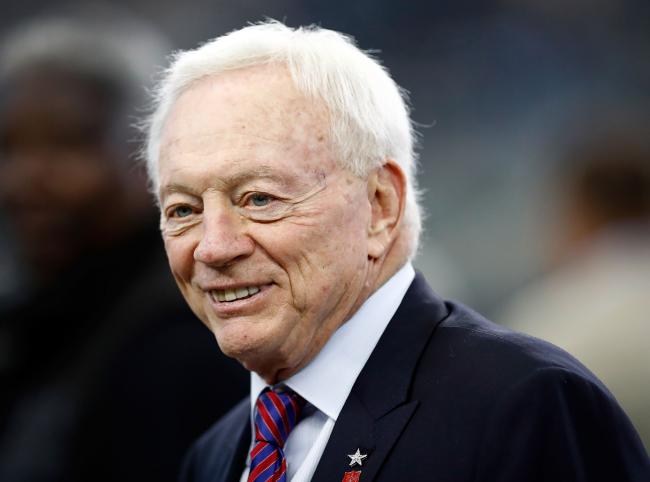(Bloomberg) -- Billionaire Dallas Cowboys owner Jerry Jones is expanding his natural gas empire at what looks like the worst possible time. Intentionally.
Jones’s Comstock Resources Inc. announced plans Monday to acquire closely held gas rival Covey Park Energy LLC in a $1.1 billion cash-and-stock deal to add assets in the Haynesville shale region.
Citing the “soft” condition of the U.S. gas market - prices are close to a 3-year low - Jones said he saw an opportunity akin to his $140 million purchase of the Cowboys 30 years ago. The team is now worth about $5 billion and is the most-valuable franchise in the National Football League, according to Forbes magazine.
“I bought it when everything was down and out,” the 76-year-old said during a conference call Monday. “This is opportune times, especially when you can deal with a world-class asset located where it is.”
While rival gas drillers such as Chesapeake Energy Corp (NYSE:CHK). have sought to pump more oil, Comstock has pursued a contrarian course, shifting even deeper into gas by reducing crude to just 9% of output last year from 39% in 2014. Jones, who will pay $650 million for new Comstock shares and perpetual convertible preferred stock, said he believes in gas “in a big way.”
While the slump in the price of gas in recent years has led some operators to shun the Haynesville in favor of other areas such as the Marcellus basin, drilling technology has improved and explorers have become more efficient, allowing the Haynesville to make a comeback. Output is estimated to have jumped 22% in last 12 months through the end of June, according to data from Rystad Energy.
“Covey Park was a massive success story driven by a team that was hugely experienced in the Haynesville,” said Greg Aitken, an analyst at Wood Mackenzie Ltd. “The acquisition pushes Comstock further down the gas cost curve.”The news sparked a sell-off in Covey Park’s 2025 unsecured notes, which plunged 7.75 cents to 81 cents on the dollar at midday, according to Trace bond trading data. That’s a record low for Covey Park’s junk-rated debt, which has about $625 million outstanding, and it pushed the yield above 12%.
The Haynesville has been a target for Jones, who said last year that he was investing in Comstock to help put more capital into the gas basin. Jones, 76, agreed in April 2018 to take a majority stake in Comstock for $620 million in exchange for the company buying oil and gas assets his Arkoma Drilling LP owned in North Dakota.
Jones will remain the biggest shareholder after the completion of the takeover, with private equity firm Denham Capital -- an investor in Covey Park -- holding a 16% stake. Covey Park Co-Chief Executive Officer John Jacobi and Jordan Marye, a managing partner at Denham, will join Comstock’s board.
Comstock is eyeing more than $25 million in annual overhead savings as part of the transaction, executives told analysts and investors, with about $75 million to $100 million of free cash flow next year.
Shares of Comstock traded 12% higher at $4.98 at 12:57 p.m. in New York after earlier climbing as much as 15%.
Other details of the deal:
- The valuation of the transaction including debt is $2.2 billion.
- Comstock also will assume Covey Park’s existing $625 million of 7.5% senior notes, retire amounts outstanding under Covey Park’s credit facility, and redeem outstanding, previously issued Covey Park preferred units.
- Covey Park’s current equity owners will get $700 million in cash, $210 million of perpetual convertible stock, and 28.3 million common Comstock shares at $6 apiece.
- The cash portion of the deal will be funded through a combination of the equity contribution from Jones and borrowings under Comstock’s bank credit facility. Comstock hired BMO Capital Markets to arrange an amended and restated $2.5 billion facility.
What Bloomberg Intelligence Says
Stubbornly low natural gas prices, coupled with Comstock’s high proportion of undeveloped reserves, will challenge the company’s goal of producing free cash flow in 2020. Though Comstock’s bonds jumped by almost 10 cents on the dollar following the announcement, they were still trading with a yield north of 13.5%.-- Spencer Cutter and Leon Huang, analystsClick here to read the research
